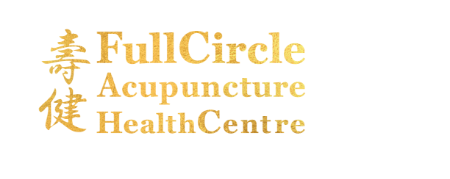O sleep, O gentle sleep, nature’s soft nurse, how have I frightened thee, that
thou no more will weigh my eyelids down, and steep my senses in forgetfulness?
–William Shakespeare, Henry IV, Part 2
失眠 SHIMIAN - INSOMNIA
布美 BU MEI
 Insomnia refers to a class of patterns characterized by the inability to remain asleep long enough for adequate rest. The condition can vary greatly in severity. In mild cases, patients experience difficulty falling asleep, are easily awakened once asleep, find it difficult to fall back to sleep once awakened, or experience fitful sleep. In severe cases, patients are unable to fall asleep throughout the entire night.
Insomnia refers to a class of patterns characterized by the inability to remain asleep long enough for adequate rest. The condition can vary greatly in severity. In mild cases, patients experience difficulty falling asleep, are easily awakened once asleep, find it difficult to fall back to sleep once awakened, or experience fitful sleep. In severe cases, patients are unable to fall asleep throughout the entire night.
Headache, dizziness, vertigo, palpitations and forgetfulness often occur with insomnia. These symptoms are frequently observed in diseases Western medicine labels as anxiety, neurasthenia and neurosis. In cases where the insomnia is caused by fever, asthma, coughing or pain, emphasis should be placed on the root illness.
Etiology and Pathogenesis
 Insomnia’s numerous etiological factors include emotional disruption or stress, improper diet and eating habits, excessive sexual activity and frail constitution following an extended illness. All these lead to dysfunction of the interchange of Yin & Yang, where Yang fails to enter Yin causing insomnia. Insomnia patterns may be from excess or deficiency, but deficiency patterns are more common.
Insomnia’s numerous etiological factors include emotional disruption or stress, improper diet and eating habits, excessive sexual activity and frail constitution following an extended illness. All these lead to dysfunction of the interchange of Yin & Yang, where Yang fails to enter Yin causing insomnia. Insomnia patterns may be from excess or deficiency, but deficiency patterns are more common.
Excess patterns may be caused by stagnation of LV Qi and LV depression transforming into fire that rises to disturb the spirit, or by obstruction of the ST by food matter giving rise to phlegm-heat and insomnia. Deficiency patterns are from Yin deficiency of Qi and Blood, affecting the HT, SP, LV, or KD. Prolonged excess patterns with depletion of Qi and Blood may develop into deficiency patterns.
TCM Patterns
LV Depression Transforming into Fire
Phlegm-Fire Harassing the Interior
Yin Deficiency with Effulgent Fire
HT and SP Deficiency
HT and GB Qi Deficiency
1. LV Depression Transforming into Fire
LV Depression Transforming into Fire
Symptoms: Insomnia, irritability, headache, distending pain of the hypochondrium, bloodshot eyes, bitter taste in the mouth, taste, dark urine, constipation.
Tongue: Red with yellow coating.
Pulse: Rapid, wiry.
Treatment: Soothe the LV, clear heat, quiet the spirit.
Points: Needle with reduce.
2. Phlegm-Fire Harassing the Interior
Symptoms: Insomnia, heaviness of the head, copious phlegm, discomfort, pain and distention of the epigastrium; aversion to eating, belching, acid regurgitation, nausea, irritability, bitter taste in the mouth.
Tongue: Yellow slimy coating.
Pulse: Rapid, slippery.
Treatment: Clear heat, transform phlegm, harmonize the ST, and quiet the spirit.
Points: Needle with reduce.
3. Yin Deficiency with Effulgent Fire
 Symptoms: Insomnia, irritability, dizziness and vertigo, tinnitus, aching lower back, palpitations, dry mouth, vexing heat in the 5 hearts, forgetfulness, nocturnal emission in some cases.
Symptoms: Insomnia, irritability, dizziness and vertigo, tinnitus, aching lower back, palpitations, dry mouth, vexing heat in the 5 hearts, forgetfulness, nocturnal emission in some cases.
Tongue: Red with little coating.
Pulse: Rapid, thready.
Treatment: Nourish KD Yin, downbear HT fire, and quiet the spirit.
Points: Needle even.
4. HT and SP Deficiency
 Symptoms: Frequent dreaming, light sleep, palpitations, forgetfulness, dizzy spells, vertigo, fatigue, tiredness, listlessness, loss of appetite, lusterless complexion.
Symptoms: Frequent dreaming, light sleep, palpitations, forgetfulness, dizzy spells, vertigo, fatigue, tiredness, listlessness, loss of appetite, lusterless complexion.
Tongue: Pale with thin coating.
Pulse: Weak, thready.
Treatment: Tonify the HT and SP to promote the production of Qi and Blood.
Points: Needle with tonify, add moxa.
5. HT and GB Qi Deficiency
 Symptoms: Insomnia, frequent dreaming, tendency to wake up startled, timidity, palpitations, proneness to fright, shortness of breath, fatigue, copious clear urine.
Symptoms: Insomnia, frequent dreaming, tendency to wake up startled, timidity, palpitations, proneness to fright, shortness of breath, fatigue, copious clear urine.
Tongue: Pale.
Pulse: Thready, wiry.
Treatment: Tonify Qi, suppress fright, quiet the spirit, and stabilize the mind.
Points: Needle with tonify, add moxa.
__________________________________________________________________________________________________________________________________________________________________REFERENCES
-Yan Wu. Practical Therapeutics of Traditional Chinese Medicine. 2017.
-Personal Classroom Notes. 2005.
![]()
